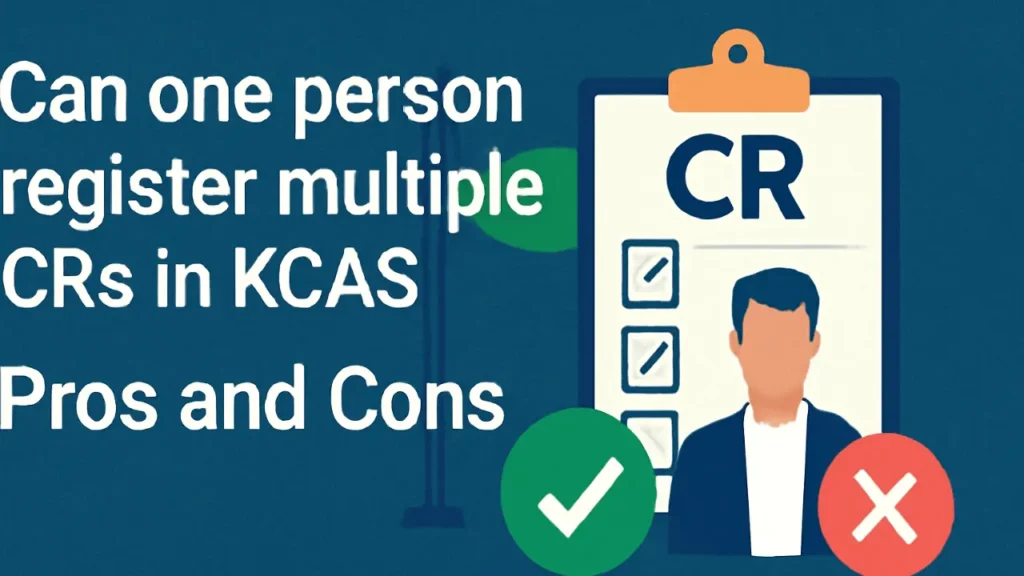Can I have more than one business license under my name in Saudi Arabia
Wondering if you can hold more than one business license under your name in Saudi Arabia? Whether you’re planning to run multiple businesses or expand your ventures, understanding the rules and process is key. In this guide, we’ll break down everything you need to know about managing multiple licenses smoothly and legally in 2025.
Local City Solutions and Vision 2030: How We Align Your Business with National Goals

Learn how Local City Solutions can help align your business with Saudi Arabia’s Vision 2030. From innovation to local growth strategies, we support your goals.
Top Government Projects Linked to Vision 2030 That Need Private Business Partners

Discover major Saudi government projects under Vision 2030 that are actively seeking private business partners. Learn how your company can tap into new growth opportunities and be part of the Kingdom’s transformative journey
Can you register multiple CRs under one person in KSA? Pros and Cons Explained

Ever wondered if you can legally run more than one business under your name in Saudi Arabia? You’re not alone. This blog explores whether having multiple CRs is possible, what the law says, and what it really means for your business journey covering the perks, the pressure, and everything in between.
What is the Role of the Chamber of Commerce in Saudi Business Setup?

The Chamber of Commerce in Saudi Arabia does much more than handle paperwork it’s a trusted partner that helps entrepreneurs, small businesses, and foreign investors navigate the local market, connect with opportunities, and grow with confidence.
How to Assign a Local Saudi Manager for Your New Company (Without Ownership Transfer)

When you start a business in Saudi Arabia, appointing a local Saudi manager is not just a good idea; it’s often a legal requirement. The Saudi government encourages foreign investors to partner with Saudi nationals to ensure that businesses are properly managed within the framework of local laws and regulations. Having a local manager helps your company stay in compliance with Saudi business regulations, which can be complicated without local knowledge. The legal requirement for appointing a local manager stems from Saudi Arabia’s desire to promote local talent and ensure that foreign companies understand and adhere to Saudi culture and business practices. By hiring a Saudi manager, you also contribute to the growth of the local workforce and the country’s economic development, which aligns with Saudi Arabia’s Vision 2030. For a local manager to be legally eligible, they must meet certain criteria. The individual must be a Saudi national and of legal age, with a good reputation. The local manager is responsible for overseeing daily operations and ensuring compliance with the laws that govern foreign companies in the Kingdom. They are the go-to person for obtaining licenses and approvals, helping your company stay within legal boundaries. This legal requirement helps build trust with local authorities, as businesses led by Saudi nationals are seen as more rooted in the local community. This not only improves your relationship with government agencies but also helps establish credibility within the local market. The local manager plays a vital role in ensuring that your company operates according to Saudi laws, and their appointment is a fundamental step in doing business in Saudi Arabia. Do You Need a Local Saudi Sponsor for This Process? Sponsor vs. Manager: Are They the Same? When starting a business in Saudi Arabia, many foreign investors are unsure whether they need a local sponsor or a local manager. There’s often confusion between the two, but they are not the same thing. Understanding the difference is key to making sure your business is set up properly. What is a Local Sponsor? In Saudi Arabia, a local sponsor traditionally refers to a Saudi national or a Saudi-owned company that helps foreign investors set up a business in the Kingdom. The sponsor is usually required in specific business structures, especially for foreign-owned companies in certain industries. A local sponsor might hold a small ownership stake in the business (typically up to 51%) and acts as the official representative in many cases, especially when it comes to dealing with government regulations. The local sponsor plays a key role in ensuring that the business complies with Saudi law, but they don’t manage the daily operations of the business. What is a Local Manager? On the other hand, a local manager is appointed to handle the day-to-day operations of the business, ensuring that everything runs smoothly on the ground. The local manager is responsible for managing the staff, overseeing business operations, and maintaining a strong relationship with local authorities. They are essential for ensuring compliance with labor laws, securing necessary permits, and guiding the business through Saudi regulations. Unlike the sponsor, the local manager does not have ownership of the business and is not required to hold a stake in the company. So, Do You Need a Local Sponsor? For most modern businesses in Saudi Arabia, especially those under the Vision 2030 reforms, having a local manager is more common than having a local sponsor. The Saudi government now allows 100% foreign ownership in many sectors, so a local sponsor is often not needed unless it’s a specific legal requirement. However, if your business requires one for certain legal or regulatory reasons, you’ll need to select a trustworthy Saudi partner who will fulfill the role of the sponsor. A local sponsor and a local manager serve different roles. The sponsor may hold a share in the business but doesn’t manage it directly, while the manager oversees day-to-day operations. Depending on your business structure, you may need one or both, but in many cases, a local manager is sufficient for running a successful business in Saudi Arabia. The Role of a Local Saudi Manager Appointing a local Saudi manager comes with a range of responsibilities that are vital to the smooth operation of your business in Saudi Arabia. A local manager helps guide the day-to-day activities of your company, ensuring that everything runs according to plan while adhering to local laws. One of the most important responsibilities of a local manager is managing the relationship between your company and Saudi government authorities. The local manager helps your business navigate the regulatory landscape by ensuring that you meet all the necessary legal requirements. From obtaining permits and licenses to managing employee relations, the local manager is responsible for staying on top of government policies and labor laws. This role helps avoid fines, delays, and legal complications that can arise from not understanding the local legal environment. Another key responsibility of the local manager is overseeing the management of employees. They are in charge of ensuring that your company’s HR practices are in line with Saudi labor laws, which can be quite different from those in other countries. This includes hiring practices, employee benefits, and ensuring that work contracts are properly executed. A local manager’s knowledge of labor laws ensures that your employees are treated fairly and that your business remains compliant. Additionally, the local manager is your primary point of contact for local business networks. Their local knowledge can help you build important relationships with suppliers, customers, and partners in the region. This can be incredibly valuable for expanding your business operations and growing your brand presence in Saudi Arabia. In essence, the local Saudi manager is essential for ensuring that your business not only meets legal requirements but also thrives in the local market. Setting Up a Local Saudi Manager Without Transferring Ownership No, The good news is that, appointing a local Saudi manager does not require you to transfer ownership of your business. A common concern
The Hidden Cost of Business Registration in Saudi Arabia: What No One Tells You

Thinking of registering a business in Saudi Arabia? While the process might seem straightforward, many new entrepreneurs are surprised by the hidden expenses that come after the paperwork. This guide uncovers the real costs you need to know before diving in.
Local City Solutions Success Story: From Idea to Legal Business in 14 Days

From a simple concept to a fully legal business in just two weeks Local City Solutions shares its inspiring journey of determination, smart planning, and fast execution. Discover how the right steps turned a vision into reality in only 14 days.
How to Update or Modify Your CR (Commercial Registration) Online

In Saudi Arabia, every business must be officially registered with the Ministry of Commerce by getting what’s called a Commercial Registration, or CR for short. This registration is essential for businesses to operate legally, sign contracts, and access various government services. Keeping the CR updated is just as important, as it ensures that your business remains compliant with local laws and regulations. Over time, businesses may need to update or modify their CR information. Whether you’re changing your business address, updating ownership details, or adjusting business activities, it’s crucial to make sure your CR reflects these changes. Thankfully, the Ministry of Commerce now offers an online platform that allows business owners to quickly and easily modify their CR information. Updating your CR online is not only faster but also ensures that all your business information stays current, reducing the chances of facing penalties or legal complications. In this guide, we’ll walk you through the process of modifying or updating your CR online, highlighting the importance of keeping this information up to date and providing step-by-step instructions to help you navigate the process smoothly. How the Commercial Registration (CR) System Works in Saudi Arabia The Commercial Registration (CR) system is overseen by the Ministry of Commerce and serves as a way to keep track of all businesses operating throughout the Kingdom. It acts as a formal acknowledgment of your company’s existence and is necessary for conducting official business, such as signing contracts, securing government approvals, and engaging in trade activities. Your CR includes critical information about your business, such as its legal name, nature of business activities, registered address, ownership details, and capital structure. This data is crucial for government entities to monitor, regulate, and provide services to businesses. Having an accurate CR is not just a legal requirement—it’s an essential part of doing business in Saudi Arabia. Incorrect or outdated CR details can lead to compliance issues, fines, or difficulties with government services. For this reason, it’s important to make sure that your CR is always current, reflecting any changes in business structure, activities, or ownership. In order to stay compliant, businesses must ensure that any significant changes are reported to the Ministry of Commerce, whether it’s a new office location, change in company ownership, or an adjustment in business activities. The CR also serves as an official document that can be used to verify your company’s legal standing when dealing with potential clients or partners. Reasons for Updating or Modifying Your CR There are several common reasons businesses may need to update or modify their Commercial Registration (CR). Here are a few key scenarios where making changes is necessary: In all these cases, keeping your CR up to date ensures that your business remains compliant with Saudi regulations and avoids legal complications down the line. An outdated CR can lead to unnecessary fines or restrictions, so timely updates are critical. Pre-requisites for Updating Your CR Online Before you begin updating your Commercial Registration (CR) online, it’s important to ensure you have everything in place. Here’s a checklist of what you need to prepare before starting the update process: For example, ensure that your new business address, the names of owners or directors, or your business activities are correct. Getting your details right from the beginning makes the whole update process smoother and helps you avoid any unnecessary hiccups along the way. Having these items ready will ensure a smoother and quicker process, allowing you to complete your CR update with minimal delays. Step-by-Step Guide to Updating Your CR Online Once you’ve gathered all the necessary documents and set up your portal account, you can begin updating your Commercial Registration (CR) online. Here’s a simple, step-by-step guide to walk you through the process with ease. By following these simple steps, you can quickly and efficiently modify your CR online. Common Mistakes to Avoid When Updating CR Although updating your Commercial Registration (CR) online is straightforward, business owners often make a few common mistakes that can delay or even cancel their update request. Here are some mistakes to avoid: By avoiding these common mistakes, you can ensure that your CR update goes through smoothly and without any complications. Timeframe for CR Update and Confirmation Once you’ve submitted your Commercial Registration (CR) update online, it’s important to understand how long the entire process will take. The timeframe for updating your CR can vary based on the nature of the changes you are making and the volume of requests being processed by the Ministry of Commerce. Typically, the process takes anywhere from 1 to 5 business days for most updates. Simple changes like a change of business address or minor ownership modifications usually take less time, while more complex changes, such as updating business activities or altering the company’s legal structure, may take a little longer. After you submit your update, you’ll receive a confirmation email stating that your request is being processed. It’s a good practice to regularly check your Ministry of Commerce portal account to track the status of your request. You can do this by logging into your account and navigating to the “CR Status” section. If your request is approved, you will receive an updated CR certificate. This will be available for download directly from the portal. In case there are any issues with your request, such as missing documents or incorrect information, you may be asked to provide additional information or correct errors. It’s also important to keep an eye on your inbox for any follow-up emails from the Ministry. These emails will inform you of the current status or any further actions you need to take. If your request is delayed beyond the expected timeframe, you can contact the Ministry’s support team to inquire about the status. Overall, staying proactive by monitoring your account and email ensures that you can swiftly address any issues and receive your updated CR without unnecessary delays. Costs Involved in Modifying CR Online Updating your Commercial Registration (CR) online is generally
Trade License and Commercial Registration in Saudi Arabia: Know the Difference

Setting up a business in Saudi Arabia? Knowing the difference between a trade license and commercial registration is essential. This guide offers clear insights, making it easy for you to understand the requirements and get your business legally up and running.

